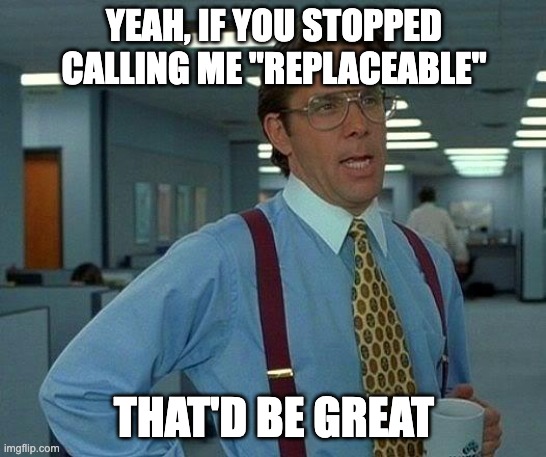Losing your job is one of the most humbling and scary moments that can happen. Not having job security and being laid off unprepared can cause stress, set back your life goals, and leave you scrambling.
Those fears become very real in a recession when business activity slows and GDP (Gross Domestic Product) falls. Remember the COVID year of 2020 or the Great Recession in 2008? Well, we might be about to go through a recession again in 2023.

For the past year, businesses have been cut deep by rising interest rates that make borrowing money more expensive. In 2022, companies like Facebook’s parent company Meta, Lyft, and Stipe laid off 13% of their staff, while Coinbase laid off as many as 18%.
And in 2023, it looks like layoffs are spreading. The investment bank Goldman Sachs plans to lay off 8% of its employees in the next couple of weeks. The Bank of England said that the U.K. is facing its most prolonged recession since records began, while the European Central Bank sees an increased likelihood of EU-wide recession. Whether the U.S. will fall into a recession is anyone’s guess.
During a recession, many people will lose their jobs; in the U.S., that might be as many as 175,000 people each month!
Thankfully, there are things you can do to improve your job security! Masses of wide-eyed employees have started talking about career cushioning. Many “cushioners” are focused on job searching to have a backup job lined up in case they get fired.
But what can you do at your current workplace to improve your job security? Here are some tips.
Focus on Creating Stories
When interviewing at a company, you will likely be asked about your contribution to your previous employer’s business. Interviewers want to hear how you grew professionally and stepped in to help your employer.
You’ll want to be equipped with compelling, truthful, and evidence-backed stories. Remember to think not only about successes but also about failures that led to learning experiences. Explaining yourself through memorable stories helps you get ahead of other candidates when you’re looking for a job.
So try to position yourself at your current job so you can create those experiences. Take on a new project or responsibility, and expand your focus. Think about what you are working on today, and see how you can add a beginning and end. What can you improve?
And in case you are not looking to leave your employer, these stories will also improve your job security at your current job. They will become impactful when you seek a promotion or a salary increase.
Close The Gap Between You and Revenue
The more direct link there is between you and the money, the more job security you will have during a recession. Companies are strapping in, cutting costs, and protecting their revenue in any way they can to stay afloat.
Many jobs are not directly on the revenue-making side, but ensure you understand how your effort contributes to your employer’s business. If the bridge between the two is you and revenue is fuzzy, think about what you could do to strengthen the connection.
For example, if your work is project-based, try to get into the company’s more profitable initiatives or focus on the bread-and-butter business your employer can’t risk. Similarly, if you are currently working on a project that the leadership team doesn’t fully support, it may be best to look for a way out. Large cuts are decided at higher levels in a company, and your managers have a hard time defending a project that the leadership team doesn’t understand.
If nothing else, clarify to your boss and your boss’ boss how you would like to impact the revenue side of the business. The better your contribution is understood, the better your job security.
Become the Go-To Person
Every company has people that others turn to. They may be managers, but often not. They are great at what they do, knowledgeable, dependable, loyal, and have become trusted in the company.
Become one of those people. Being known within your team and company as the go-to person is a great career move that increases job security.
So, become the solution to others’ problems and build trust with colleagues at every level. Make sure you’re doing a meticulous job, and become so helpful that firing you will feel like severing an arm.
Build an Emergency Fund
Unfortunately, you may still be laid off despite doing everything you can. During a recession, employees are laid off left and right. It’s hard not to blame yourself but try to remember that the situation is essentially out of your control.
However, what you can control is to be ready to ride it out. Job-seeking may take some time, especially during a recession. Therefore, ensuring you have the financial security to find the right opportunity that aligns with your goals is essential.
Your ultimate goal should be to have at least 3 months’ worth of spending saved up, but every little bit helps. Paying off high-interest debt (such as credit cards) and building an emergency fund may take a while. Therefore, you may find it easier to start by setting a small goal like $1,000.
First, set a budget or spending plan. Start by estimating mandatory living costs (housing, food, utilities, loan payments, + some extra). You can also get help from apps like Mint, Goodbudget, or YNAB.
Second, open a high-yield savings account like Ally. Having a separate account makes it easier to keep your hands off it while keeping the funds accessible.
Third, automate your payroll (if your employer allows it) to have part of your paycheck deposited directly into the savings account. That way, you will pay yourself first and are less tempted to spend it.
Career Proofing
All the above tips are equally valuable in good times and bad. If you do these things, you will be more recession-proof and have more job security. But the same points hold true if you want to grow in your career or get a promotion.
So, what’s to lose?
If you are willing to go the extra mile or just dip your toes, I genuinely believe you will be better off regardless. Whatever happens to your career in the next year, I hope it will be great in the long run!
And remember, being laid off can become the best thing that ever happened to you! The nudge to make the career move you always wanted can make you happier in the long run.

